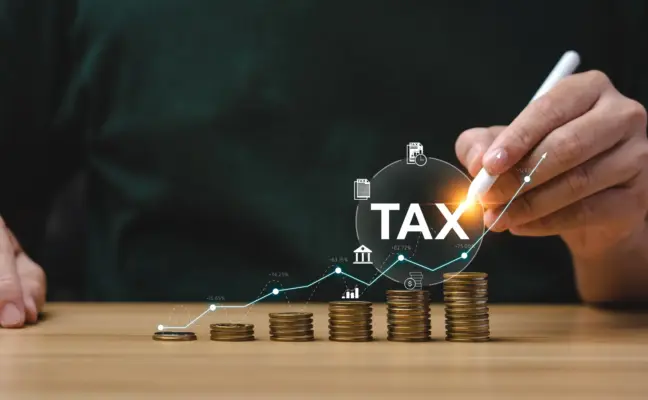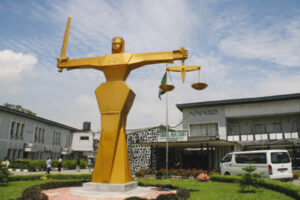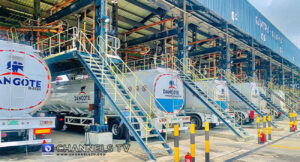A wave of uncertainty has swept social media amid reports of a potential five per cent fuel surcharge linked to Nigeria’s latest tax reforms, sparking widespread concerns about impending fuel price hikes.
The Chairman of the Presidential Committee on Fiscal Policy and Tax Reforms, Taiwo Oyedele, has shed light on the intricacies of the issue on his official X handle on Saturday, separating fact from speculation after several speculative reviews flooded the media space following the recent passage of the Nigeria Tax Act, 2025, which streamlines and standardises previous tax laws.
Netizens claimed that President Bola Tinubu’s administration had imposed a new fuel surcharge, triggering widespread concern among citizens, with concerns that the President is aiming to implement stronger tax burdens on Nigeria.
According to statement posted on X, Oyedele explained that the surcharge is aimed towards creating a dedicated, predictable funding source for road construction and maintenance taking public transparency as priority.
“This note seeks to clarify matters arising regarding the 5% fuel surcharge in the new tax laws. The charge is not a new tax introduced by the current administration. The provision already exists under the Federal Roads Maintenance Agency (Amendment) Act, 2007. Its restatement in the new Tax Act is for harmonisation and transparency rather than immediate implementation. We outline the frequently asked questions below and provide clarifying explanations,” Oyedele explained
𝐈𝐬 𝐢𝐭 𝐭𝐫𝐮𝐞 𝐭𝐡𝐚𝐭 𝐓𝐢𝐧𝐮𝐛𝐮’𝐬 𝐚𝐝𝐦𝐢𝐧𝐢𝐬𝐭𝐫𝐚𝐭𝐢𝐨𝐧 𝐢𝐧𝐭𝐫𝐨𝐝𝐮𝐜𝐞𝐝 𝐚 5% 𝐬𝐮𝐫𝐜𝐡𝐚𝐫𝐠𝐞 𝐨𝐧 𝐟𝐮𝐞𝐥
The surcharge is not new. It already exists under the Federal Roads Maintenance Agency (Amendment) Act, 2007 (FERMA Act). The new Tax Act only restates it for harmonisation and transparency. Hence, it was not part of the original tax reform bills submitted by the president to the National Assembly.
𝐃𝐨𝐞𝐬 𝐭𝐡𝐢𝐬 𝐦𝐞𝐚𝐧 𝐭𝐡𝐞 𝐬𝐮𝐫𝐜𝐡𝐚𝐫𝐠𝐞 𝐰𝐢𝐥𝐥 𝐜𝐨𝐦𝐦𝐞𝐧𝐜𝐞 𝐢𝐧 𝐉𝐚𝐧𝐮𝐚𝐫𝐲 2026 𝐰𝐡𝐞𝐧 𝐭𝐡𝐞 𝐧𝐞𝐰 𝐭𝐚𝐱 𝐥𝐚𝐰𝐬 𝐭𝐚𝐤𝐞 𝐞𝐟𝐟𝐞𝐜𝐭
The surcharge does not take effect automatically with the new tax laws. It will only commence when the Minister of Finance issues an order published in the Official Gazette as stated under Chapter 7 of the Nigeria Tax Act, 2025. This safeguard ensures careful consideration of timing and economic conditions before implementation.
𝐖𝐢𝐥𝐥 𝐭𝐡𝐞 𝐬𝐮𝐫𝐜𝐡𝐚𝐫𝐠𝐞 𝐚𝐩𝐩𝐥𝐲 𝐭𝐨 𝐚𝐥𝐥 𝐟𝐮𝐞𝐥 𝐩𝐫𝐨𝐝𝐮𝐜𝐭𝐬
Several energy products used by households are exempt. This includes household kerosene, cooking gas (LPG), and compressed natural gas (CNG). Clean and renewable energy products are also excluded to align with Nigeria’s energy transition agenda.
𝐖𝐡𝐲 𝐧𝐨𝐭 𝐚𝐛𝐨𝐥𝐢𝐬𝐡 𝐭𝐡𝐞 𝐜𝐡𝐚𝐫𝐠𝐞, 𝐠𝐢𝐯𝐞𝐧 𝐭𝐡𝐞 𝐜𝐮𝐫𝐫𝐞𝐧𝐭 𝐡𝐚𝐫𝐝𝐬𝐡𝐢𝐩 𝐚𝐧𝐝 𝐭𝐡𝐞 𝐫𝐢𝐬𝐤 𝐨𝐟 𝐡𝐢𝐠𝐡𝐞𝐫 𝐢𝐧𝐟𝐥𝐚𝐭𝐢𝐨𝐧
The surcharge is designed as a dedicated fund for road infrastructure and maintenance.
If implemented effectively, it will provide safer travel conditions, reduce travel time and cost, lower logistics costs and vehicle maintenance expenses, which will benefit the wider economy.
Read Also
This practice is virtually universal with over 150 countries imposing various charges ranging between 20% to 80% of fuel products to guarantee regular investment in road infrastructure.
𝐖𝐡𝐲 𝐜𝐚𝐧’𝐭 𝐬𝐚𝐯𝐢𝐧𝐠𝐬 𝐟𝐫𝐨𝐦 𝐟𝐮𝐞𝐥 𝐬𝐮𝐛𝐬𝐢𝐝𝐲 𝐫𝐞𝐦𝐨𝐯𝐚𝐥 𝐛𝐞 𝐮𝐬𝐞𝐝 𝐢𝐧𝐬𝐭𝐞𝐚𝐝
While subsidy savings will provide some funding, they are insufficient to meet Nigeria’s huge and recurring road infrastructure needs among other public finance needs.
A dedicated fund ensures reliable and predictable financing for roads, complementing the budget and ensuring roads are not left underfunded.
𝐈𝐬𝐧’𝐭 𝐭𝐡𝐢𝐬 𝐚𝐭 𝐨𝐝𝐝𝐬 𝐰𝐢𝐭𝐡 𝐭𝐡𝐞 𝐫𝐞𝐟𝐨𝐫𝐦 𝐨𝐛𝐣𝐞𝐜𝐭𝐢𝐯𝐞 𝐨𝐟 𝐫𝐞𝐝𝐮𝐜𝐢𝐧𝐠 𝐭𝐚𝐱𝐞𝐬 𝐚𝐧𝐝 𝐞𝐚𝐬𝐢𝐧𝐠 𝐭𝐡𝐞 𝐛𝐮𝐫𝐝𝐞𝐧 𝐨𝐧 𝐜𝐢𝐭𝐢𝐳𝐞𝐧𝐬
Not at all. The reforms have already reduced multiple taxes and removed or suspended several charges that directly affect households and small businesses, such as VAT on fuel, excise tax on telecoms, and the cybersecurity levy.
By harmonising earmarked taxes, government is reducing duplication and ensuring a more efficient tax system.
𝐖𝐡𝐲 𝐧𝐨𝐭 𝐣𝐮𝐬𝐭 𝐚𝐦𝐞𝐧𝐝 𝐭𝐡𝐞 𝐅𝐄𝐑𝐌𝐀 𝐀𝐜𝐭 𝐭𝐨 𝐫𝐞𝐦𝐨𝐯𝐞 𝐭𝐡𝐞 𝐬𝐮𝐫𝐜𝐡𝐚𝐫𝐠𝐞?
Yes, the surcharge has been removed from the FERMA Act and incorporated into the new tax laws which are designed to provide a forward-looking legal framework for Nigeria.
Keeping this provision in place within a harmonised legal framework ensures Nigeria is prepared to address critical challenges, such as sustainable road financing and even climate change impacts.
It is not about immediate implementation, but to ensure the law provides a clear and effective framework for when it becomes necessary in the future.
https://x.com/taiwoyedele/status/1964366190496600240
Oyedele tasked Nigerians to brace for transparency as Tinubu-led administration is prepared to address critical challenges, from sustainable road financing to climate change impacts.





